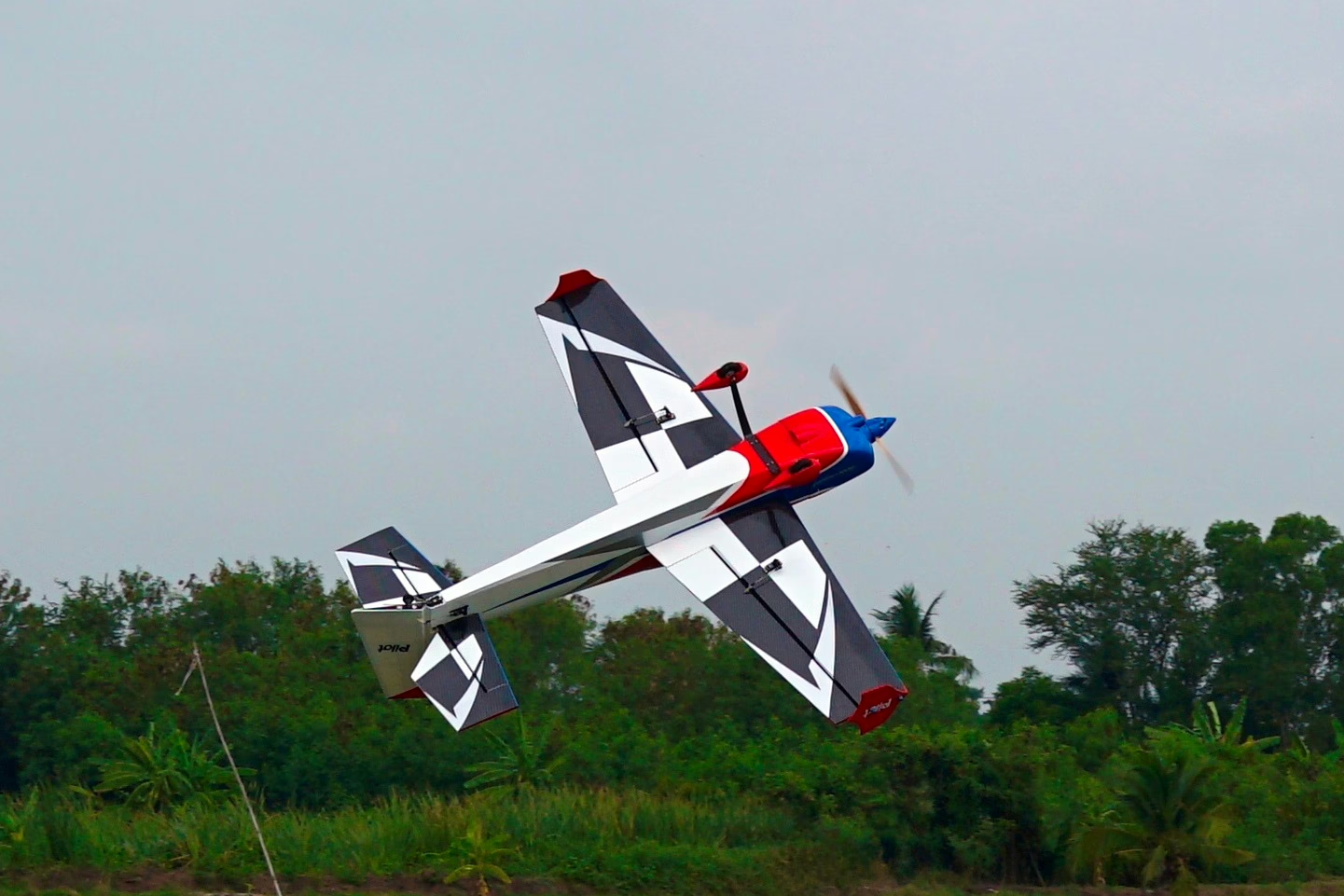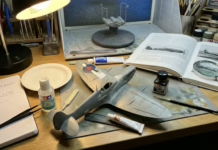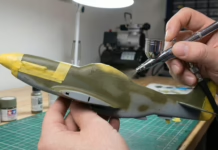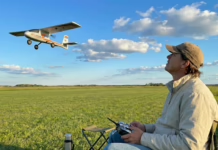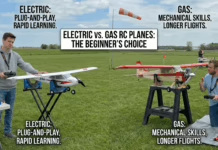Rolls form the foundation of aerobatic flying alongside loops, opening the door to thousands of different maneuvers. While there are various approaches to teaching rolls, certain methods promote faster learning and more successful results.
Whether you’re a weekend flyer looking to add excitement to your flights or an aspiring aerobatic pilot building competitive skills, mastering these roll techniques will transform your flying capabilities. The progression outlined here moves systematically from basic aileron rolls through advanced slow rolls, ensuring you build the solid foundation necessary for advanced aerobatic maneuvers.
Basic Aileron Rolls: Building Your Foundation
The basic aileron roll serves as your entry point into aerobatic flying. This fundamental maneuver teaches essential coordination skills while building confidence in inverted flight attitudes.
The Setup: Establishing Your Climb
Start by pulling your airplane into a 10- to 20-degree climb. This initial climb provides crucial altitude buffer, allowing you to focus entirely on roll execution without worrying about ground clearance. The climb also helps maintain altitude throughout the maneuver, as gravity will naturally pull the aircraft earthward during the roll.
Critical Step: Neutralize your elevator input completely before applying aileron. This seemingly simple action prevents the most common beginner mistake—mixing elevator and aileron inputs that result in barrel rolls and heading changes.
Executing the Roll
Once established in your climb with neutral elevator:
- Apply full aileron deflection in your chosen direction
- Maintain steady aileron input throughout the entire rotation
- Focus intensely on the wings approaching level flight
- Neutralize aileron precisely as the wings reach level
The timing of aileron neutralization determines roll quality. Too early, and you’ll stop short of wings-level. Too late, and you’ll overshoot, requiring correction inputs that reduce precision.
Speed and Power Considerations
Higher airspeeds significantly improve roll quality by reducing gravity’s influence on the aircraft. At 50+ mph, most symmetrical-wing aircraft will complete clean rolls with minimal altitude loss. Full aileron deflection also accelerates roll completion, finishing the maneuver before significant altitude loss occurs.
Lower-speed rolls tend to drop more toward completion, as gravity has more time to affect the aircraft’s flight path. If you consistently finish rolls lower than your starting altitude, try steeper entry angles or higher airspeeds on subsequent attempts.
Common Mistakes to Avoid
- Mixing Elevator and Aileron: Applying aileron while still holding elevator creates clumsy barrel rolls and destroys heading accuracy. Always neutralize elevator before initiating the roll.
- Premature Corrections: Since rolls complete quickly (typically 1-2 seconds), wait until after completion to evaluate and adjust. Mid-maneuver corrections often create more problems than they solve.
Horizontal Rolls: Adding Precision Control
Once you’ve mastered basic rolls, horizontal rolls introduce elevator management to maintain level flight throughout the maneuver. This advancement requires precise timing and control inputs that separate competent pilots from beginners.
The Down-Elevator Technique
During the inverted portion of any roll, your aircraft requires down-elevator input to maintain level flight. Since the inverted phase lasts only briefly, this input must be a quick “bump” rather than sustained pressure.
Timing is Everything: The down-elevator bump occurs precisely when the aircraft reaches inverted flight. Apply a brief in-and-out elevator input while continuing to hold aileron throughout the roll.
Avoiding the “Evaluation Trap”
Many pilots attempt to gauge their down-elevator input by watching the aircraft’s response. This approach typically fails because it leads to holding elevator input too long while visually evaluating its effect. The result: an outside barrel roll with heading and altitude loss.
The Solution: Make your elevator bump brief enough that it’s not visually apparent. If you can see the elevator input’s effect, you’ve either applied too much or held it too long. Trust your muscle memory rather than visual feedback.
Progressive Entry Angles
As your confidence with horizontal rolls increases, gradually reduce your entry climb angle. The eventual goal involves using just enough up-elevator to prevent the aircraft from dropping during the roll’s initial phase, while the down-elevator bump maintains level flight through inverted.
This progression teaches the nuanced elevator control required for advanced aerobatic maneuvers while maintaining the safety margin of altitude.
Consecutive Rolls: Building Fluency
Double and triple consecutive rolls represent the logical progression from single horizontal rolls. These maneuvers demand precise timing of multiple elevator inputs while maintaining continuous aileron deflection.
The Commitment Approach
Success in consecutive rolls requires full commitment to the maneuver from initiation. Start with your climbing entry, then hold aileron input throughout both complete rotations. Your only concern becomes timing the elevator bumps correctly.
Input Sequence for Double Rolls:
- Initial up-elevator for climb entry
- Down-elevator bump at first inverted position
- Up-elevator bump approaching upright between rolls
- Down-elevator bump at second inverted position
- Final up-elevator for level-off
Timing and Rhythm
Watch the aircraft’s attitude to determine input timing: “Inverted, upright, inverted, upright.” Each elevator bump must be applied individually at the appropriate moment. Premature transition from one bump to the next causes heading changes and sloppy execution.
Practice Technique: Rehearse the finger movements on your transmitter before flying. Practice applying individual elevator bumps while holding continuous aileron input. This ground practice saves hours of airtime and builds muscle memory for precise timing.
Speed Considerations
At airspeeds above 50 mph, properly executed elevator bumps become nearly invisible to observers. The aircraft maintains level flight throughout the maneuver without obvious control input effects—the hallmark of expert execution.
Advanced Upright Slow Rolls: Demonstrating Mastery
The slow roll represents the pinnacle of roll technique, distinguishing skilled aerobatic pilots from casual performers. This maneuver requires precise coordination of all control surfaces while maintaining constant altitude and heading throughout an extended roll sequence.
Control Input Coordination
Slow rolls demand coordination between aileron, elevator, and rudder inputs. Reduce your aileron deflection to slow the roll rate, then add rudder during knife-edge portions to maintain level flight.
Rudder Direction Rule:
- First knife-edge: Apply rudder opposite to roll direction
- Final knife-edge: Apply rudder in the same direction as the roll
For example, during a right slow roll: apply left rudder through the first knife-edge, then right rudder through the final knife-edge.
Critical Entry Technique
The slow roll’s success depends heavily on proper entry execution:
- Apply minimal up-elevator at roll initiation to prevent altitude loss
- Delay rudder input until wings bank at least 30-45 degrees
- Use elevator “pressure” rather than measurable deflection
- Smoothly coordinate all inputs throughout the maneuver
Think Pressure, Not Position: Elevator inputs in slow rolls should feel like applying pressure to the stick rather than moving it to specific positions. This subtle approach prevents over-control and maintains smooth flight paths.
Common Slow Roll Errors
Neglecting Elevator Inputs: Using only rudder to maintain altitude creates visible yaw and slight turning tendencies. Proper elevator inputs are essential for level flight maintenance.
Premature Rudder Application: Applying rudder before the wings reach adequate bank angle can initiate unwanted turns. Wait until the aircraft is clearly banked before introducing rudder.
Excessive Control Deflections: Large control inputs become visually obvious and reduce maneuver quality. Smooth, minimal inputs produce superior results.
Advanced Timing Considerations
The slower your roll rate, the slower you must apply and remove control inputs. This relationship between roll rate and input timing requires practice to master. Higher stick tension helps you feel control positions more precisely compared to simply reacting to aircraft movement.
Building Your Foundation: The Key to Success
Advanced maneuvers rely on solid fundamentals. If you encounter difficulties adding refinements to your rolls, return to basic techniques and strengthen your foundation. Practice can only make perfect when built upon correct fundamental skills.
Many advancing pilots assume that difficulties require more complex techniques or additional practice time. Often, the opposite proves true—returning to basics and reaffirming fundamental skills provides the foundation needed to progress beyond trouble spots.
Progressive Training Approach:
- Master basic aileron rolls with consistent execution
- Add horizontal roll refinements only after basic proficiency
- Progress to consecutive rolls when horizontal rolls are reliable
- Attempt slow rolls only after mastering all previous techniques
Each level builds upon the previous, creating a solid foundation for advanced aerobatic flying. Rushing through the progression often creates gaps in fundamental skills that become apparent in advanced maneuvers.
Essential Practice Guidelines
Training Environment Setup
Choose practice conditions that maximize learning:
- Wind Conditions: Light winds for initial training
- Altitude: Maintain adequate safety margins for basic rolls
- Aircraft Condition: Ensure proper center of gravity and control surface setup
- Battery Management: Practice when aircraft systems are at full capacity
Systematic Skill Development
Session Structure:
- Begin each session with basic rolls to establish rhythm
- Progress gradually through skill levels within single sessions
- End sessions before fatigue affects control precision
- Review flight footage if available to identify improvement areas
Error Analysis: When rolls don’t meet your standards, identify the specific issue before attempting corrections. Random adjustments rarely improve performance and can establish bad habits.
Building Confidence Through Repetition
Consistency develops through repetition, but quality repetition. Ten perfect basic rolls build more skill than fifty sloppy attempts. Focus on executing each maneuver correctly rather than simply logging practice time.
The day you can perform a slow roll the length of your flying field marks your transition to accomplished aerobatic flying. This achievement represents not just technical skill, but the confidence and control that define expert pilots.
Conclusion: Your Path to Aerobatic Excellence
Rolling maneuvers open the door to unlimited aerobatic possibilities. The systematic progression from basic aileron rolls through advanced slow rolls provides the foundation for complex aerobatic sequences and competitive flying.
Remember that each technique builds upon previous skills. Master each level completely before advancing, and return to fundamentals whenever you encounter difficulties. The crawl-walk-run approach ensures steady progress while building the confidence necessary for advanced aerobatic flying.
Your journey to aerobatic mastery begins with that first perfect aileron roll. Every subsequent refinement—horizontal control, consecutive execution, and slow roll precision—adds to your capabilities and flying enjoyment. Practice with purpose, fly with patience, and celebrate each milestone in your aerobatic development.
The skills outlined in this guide represent decades of accumulated knowledge from expert aerobatic instructors and pilots. Apply these techniques systematically, and you’ll discover the unique satisfaction that comes from precise aircraft control and the limitless possibilities of aerobatic flight.



